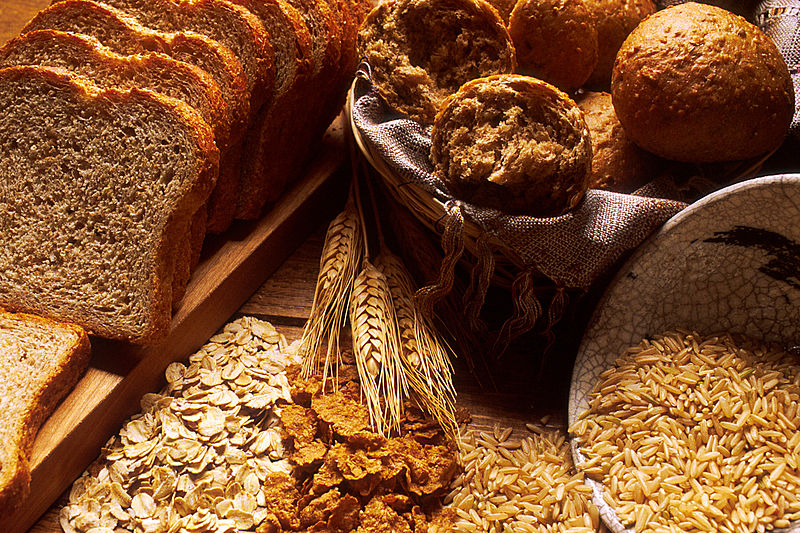The Bread of Life Discourse in Year B of the Sunday Cycle
One of the liturgical reforms of the Second Vatican Council was to increase the amount of the Scriptures proclaimed at Mass. Prior to Vatican II, there was only one set of readings for Sundays and holydays. At the direction of the Council, a three year cycle was created and the readings for each of the years (A, B, and C) were selected. The Gospels proclaimed are largely assigned to a specific year: Matthew in Year A, Mark in Year B, Luke in Year C. John’s Gospel is used each year on major feast days, for the Lenten Scrutinies, throughout the Easter season, and in one other significant time throughout the three years: The Bread of Life Discourse in Year B.

Here we are in Year B and since our return to Ordinary Time back in May, we have heard from the Gospel of Mark. However, right after our previous week’s Gospel about Jesus disembarking from the boat, seeing the vast crowds, his heart moving with pity for them for “they were like sheep without a shepherd” (Mark 6:34), we take a five week detour—or as I would call it—a parallel highway into the Gospel of John. In these five weeks called The Bread of Life Discourse, we hear nearly the entirety of John chapter 6. This famous chapter of which we are all familiar is where Jesus says he is the bread of life. It from this chapter where the Church draws much of her Eucharistic theology. These five Sundays, the Seventeenth through Twenty-first Sundays in Ordinary Time, can almost be a liturgical season of itself! (It is worth noting that because the Assumption of the Blessed Virgin Mary falls on a Sunday this year, the feast of Our Lady supersedes the Twentieth Sunday in Ordinary Time; thus, we do miss one of the weeks of The Bread of Life Discourse.)
Why did I call the discourse a “parallel highway”? The final passage we heard last Sunday was “[Jesus] began to teach them many things” (Mark 6:34). In Mark’s Gospel, the next verse begins the story of the feeding of the five thousand. This story is where we begin today in John 6. Through The Bread of Life Discourse, Jesus teaches them the “many things” that Mark spoke about. The passages in this discourse over the five Sundays move from Jesus feeding the people, to teaching them, the peoples’ disgusted reaction to having to eat his flesh, and then finally Simon Peter’s great profession of faith: “You have the words of enteral life” (68). Here is a brief summary of the five Sundays:
Seventeenth Sunday - John 6:1-15: Jesus feeds the five thousand and it symbolizes the food that is readily available through Jesus—the psalm response, "The hand of the Lord feeds us; he answers all our needs," reinforces that God gives us whatever we need. With the vast crowd reclining on the mountain similar to the Israelites time in the desert, it signifies a new exodus.
Eighteenth Sunday - John 6:24-35: The crowd follows Jesus to Capernaum because he met their bodily needs (fed them). He tells them to work for the “food that endures for eternal life” (27). He tells them that it was not Moses who gave their ancestors bread, but his Father in heaven. The psalm and accompanying response “The Lord gave them bread from heaven,” comes from Psalm 78—a psalm which recounts the history of Israel—from the exodus to return from exile.
Nineteenth Sunday - John 6:41-51: Jesus tells the crowd to “stop murmuring” regarding him saying he is “the bread come down from heaven” (41) akin the Israelites murmuring against Moses and God in desert. Jesus again says he is the bread of life and the “bread [he] will give is my flesh for the life of the world” (51). The psalm for this and the next two Sundays is 34: “Taste and see the goodness of the Lord.”
Twentieth Sunday - John 6:52-59 (not heard this year because of Assumption): Jesus doubles down on his claim to be the bread of life and that we must eat his flesh and drink his blood to have eternal life. The Greek verb for “eat” is trogein which refers more to animal eating rather than human eating. Trogein means to “gnaw” or “munch.”
Twenty-first Sunday - John 60-69: Many of the disciples following him said that his teaching was “hard” and asked “who can accept it?” (60). Jesus says his words are “spirit and life” (63). As a result, many were scandalized at this teaching and many began to leave. Jesus asks the Twelve if they wished to leave. Simon Peter answers, “Master, to whom shall we go? … You are the Holy One of God” (68).
Through this discourse, may we come to a deeper knowledge of the Bread of Life and make Peter’s great profession our own!


Comments
There are no comments yet - be the first one to comment: